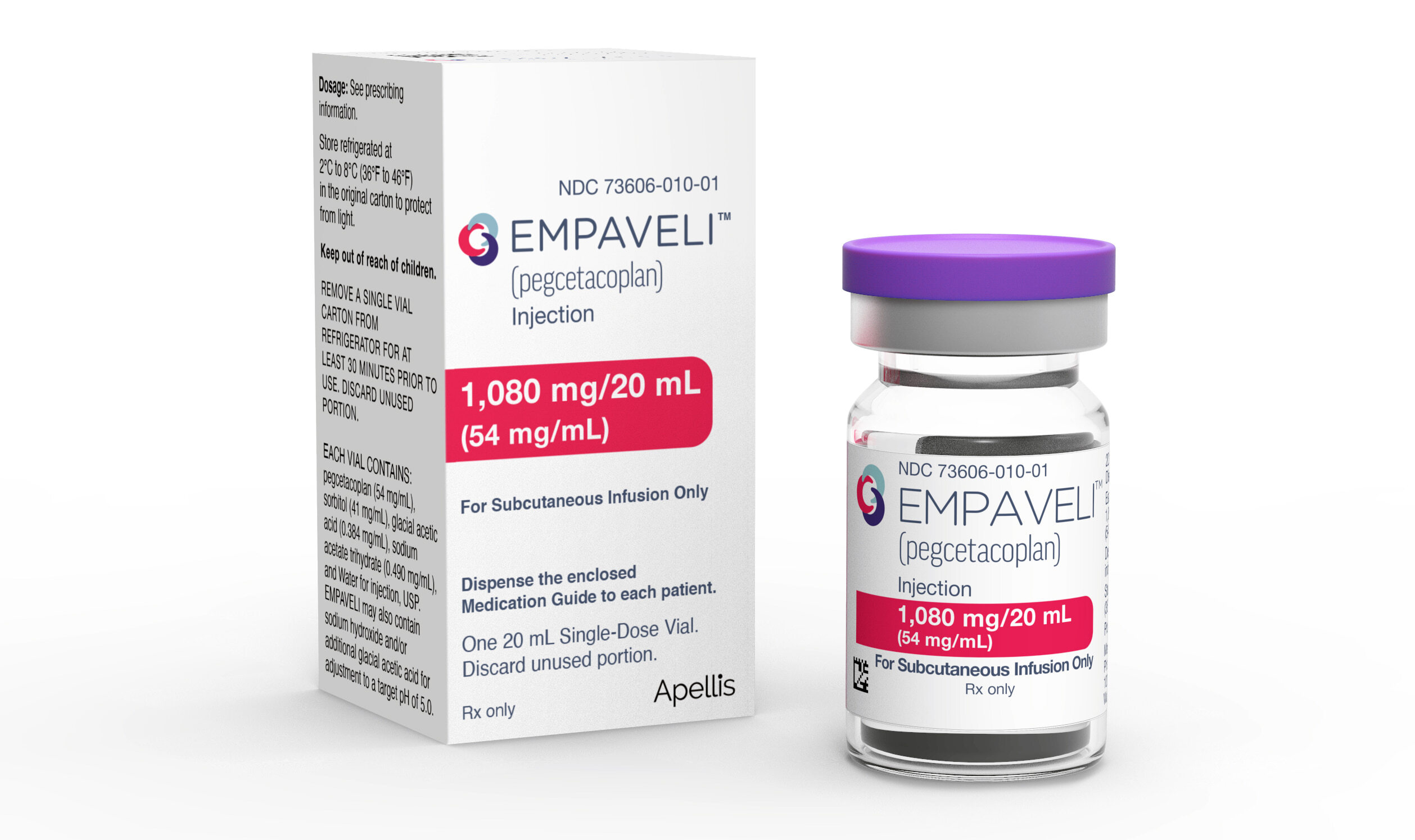
Empaveli is a groundbreaking medication that has revolutionized the treatment of paroxysmal nocturnal hemoglobinuria (PNH) and atypical hemolytic uremic syndrome (aHUS). This innovative drug has provided a beacon of hope to patients suffering from these rare and life-threatening conditions. As a complement inhibitor, Empaveli works by targeting the underlying causes of PNH and aHUS, offering a ray of light for those who have long grappled with limited treatment options. Understanding the key facts about Empaveli is essential for patients, caregivers, and healthcare professionals alike. In this article, we will delve into 10 crucial Empaveli drug facts, shedding light on its mechanism of action, benefits, potential side effects, and much more. Let's embark on a journey to uncover the vital information surrounding this transformative medication.
Key Takeaways:
- Empaveli is a new drug for a rare blood disorder called PNH. It reduces red blood cell destruction and offers once-daily injections for improved convenience and better hemoglobin levels.
- Empaveli is a breakthrough in PNH treatment, offering hope and improved outcomes for patients. Its targeted approach and favorable safety profile make it a pivotal addition to existing management strategies.
Empaveli is a breakthrough medication for treating paroxysmal nocturnal hemoglobinuria (PNH).
Empaveli, also known as pegcetacoplan, is a novel drug that has been approved by the U.S. Food and Drug Administration (FDA) for the treatment of paroxysmal nocturnal hemoglobinuria (PNH). PNH is a rare and life-threatening blood disorder characterized by the destruction of red blood cells, blood clots, and impaired bone marrow function. Empaveli offers a promising therapeutic option for patients with PNH, addressing the underlying cause of the disease by targeting the complement system.
Empaveli is administered subcutaneously.
Patients receiving Empaveli undergo subcutaneous administration, which involves injecting the medication under the skin. This route of administration allows for the gradual absorption of the drug into the bloodstream, ensuring sustained therapeutic levels. Subcutaneous delivery also offers the advantage of convenience, as patients can self-administer the medication at home following appropriate training and guidance from healthcare providers.
Empaveli demonstrates efficacy in reducing hemolysis in PNH.
Empaveli has shown significant efficacy in reducing hemolysis, the process of red blood cell destruction, in patients with PNH. By inhibiting the activity of the complement system, Empaveli helps mitigate the excessive breakdown of red blood cells, thereby improving anemia and reducing the risk of associated complications. This mechanism of action underscores the therapeutic impact of Empaveli in addressing the pathophysiology of PNH.
Empaveli offers a favorable safety profile.
Clinical studies have demonstrated that Empaveli exhibits a favorable safety profile, with manageable and well-tolerated side effects. The medication has been shown to have a low risk of serious adverse events, providing reassurance for patients and healthcare providers. The safety and tolerability of Empaveli contribute to its potential as a reliable treatment option for individuals with PNH.
Empaveli is a complement component 3 (C3) inhibitor.
Empaveli functions as a complement component 3 (C3) inhibitor, targeting a key component of the complement system. By modulating the activity of C3, Empaveli interrupts the cascade of complement-mediated hemolysis, offering a targeted approach to managing PNH. This unique mechanism of action distinguishes Empaveli as an innovative therapeutic agent for the treatment of PNH.
Empaveli is indicated for treatment-naïve and complement inhibitor-experienced PNH patients.
Empaveli is indicated for both treatment-naïve patients with PNH and those who have previously received complement inhibitors. This broad indication encompasses individuals at different stages of PNH management, providing a valuable treatment option for diverse patient populations. The flexibility of Empaveli’s indication reflects its potential to address the needs of patients with varying treatment histories and disease presentations.
Empaveli offers the convenience of once-daily dosing.
Empaveli offers the convenience of once-daily dosing, simplifying the treatment regimen for patients with PNH. This dosing schedule enhances medication adherence and patient compliance, contributing to the effective management of the disease. The simplicity of once-daily dosing aligns with patient-centered care, offering practical benefits for individuals undergoing PNH treatment.
Empaveli has demonstrated efficacy in improving hemoglobin levels.
Clinical trials have shown that Empaveli effectively improves hemoglobin levels in patients with PNH, addressing the anemia associated with the condition. By mitigating hemolysis and its impact on red blood cell destruction, Empaveli contributes to the restoration of hemoglobin levels, thereby alleviating anemia and its related symptoms. This therapeutic effect underscores the clinical significance of Empaveli in managing PNH.
Empaveli is a landmark advancement in PNH treatment.
Empaveli represents a landmark advancement in the treatment landscape for PNH, offering a targeted and effective therapeutic approach. The approval of Empaveli by the FDA signifies a significant milestone in addressing the unmet medical needs of patients with PNH, providing hope and improved outcomes for individuals living with this rare and challenging blood disorder. The introduction of Empaveli marks a pivotal moment in the history of PNH management, ushering in a new era of treatment possibilities for patients and healthcare providers.
Empaveli is a pivotal addition to PNH management strategies.
Empaveli stands as a pivotal addition to the comprehensive management strategies for PNH, offering a novel and complementary approach to existing treatment modalities. The introduction of Empaveli enriches the therapeutic armamentarium for healthcare providers, empowering them to tailor treatment plans to individual patient needs and optimize outcomes. With its targeted mechanism of action and demonstrated efficacy, Empaveli embodies a transformative force in enhancing the care and prognosis of individuals affected by PNH.
Conclusion
Empaveli is a groundbreaking drug that has shown promise in treating paroxysmal nocturnal hemoglobinuria (PNH) and atypical hemolytic uremic syndrome (aHUS). With its innovative mechanism of action and proven efficacy, Empaveli offers hope to patients suffering from these rare and life-threatening conditions. As a targeted C5 inhibitor, Empaveli has the potential to significantly improve the quality of life for individuals battling PNH and aHUS. The approval of Empaveli represents a significant advancement in the field of medicine, providing healthcare professionals and patients with a much-needed therapeutic option. As further research and clinical experience accumulate, Empaveli is poised to play a pivotal role in the management of PNH and aHUS, offering renewed hope and improved outcomes for those affected by these challenging diseases.
FAQs
What is Empaveli?
Empaveli is a medication used to treat paroxysmal nocturnal hemoglobinuria (PNH) and atypical hemolytic uremic syndrome (aHUS). It is a targeted C5 inhibitor designed to inhibit the destruction of red blood cells and platelets in these rare and serious conditions.
How does Empaveli work?
Empaveli works by blocking the C5 protein in the complement system, which plays a key role in the destruction of red blood cells and platelets. By inhibiting this process, Empaveli helps to reduce hemolysis and thrombosis associated with PNH and aHUS.
What are the benefits of Empaveli?
Empaveli offers the potential to improve the symptoms and complications of PNH and aHUS, including anemia, fatigue, and the risk of blood clots. By targeting the underlying mechanism of these conditions, Empaveli can help patients achieve better outcomes and a higher quality of life.
Is Empaveli safe?
Empaveli has been studied in clinical trials and has demonstrated a favorable safety profile. However, like all medications, it may be associated with certain risks and side effects. Patients should discuss the potential benefits and risks of Empaveli with their healthcare provider.
Who can benefit from Empaveli?
Empaveli is indicated for the treatment of PNH and aHUS in appropriate patients. Individuals diagnosed with these conditions may benefit from Empaveli as part of their comprehensive treatment plan. Healthcare providers can determine whether Empaveli is suitable for their patients based on individual medical history and needs.
How is Empaveli administered?
Empaveli is typically administered by intravenous infusion. The specific dosing and administration schedule will be determined by a healthcare professional based on the individual patient’s condition and needs.
What should patients know before taking Empaveli?
Prior to starting Empaveli, patients should inform their healthcare provider about any existing medical conditions, medications, and allergies. It is important to have a thorough discussion with a healthcare professional to ensure that Empaveli is appropriate and safe for the individual’s specific circumstances.
Are there any potential side effects of Empaveli?
Common side effects of Empaveli may include headache, diarrhea, and hypertension. Patients should be aware of potential side effects and report any concerning symptoms to their healthcare provider. It is essential to follow the guidance of a healthcare professional while taking Empaveli.
What is the future outlook for Empaveli?
Empaveli represents a significant advancement in the treatment of PNH and aHUS, offering new hope for patients with these challenging conditions. Ongoing research and real-world experience will continue to shape the understanding and utilization of Empaveli, potentially expanding its role in the management of PNH and aHUS.
Was this page helpful?
Our commitment to delivering trustworthy and engaging content is at the heart of what we do. Each fact on our site is contributed by real users like you, bringing a wealth of diverse insights and information. To ensure the highest standards of accuracy and reliability, our dedicated editors meticulously review each submission. This process guarantees that the facts we share are not only fascinating but also credible. Trust in our commitment to quality and authenticity as you explore and learn with us.


